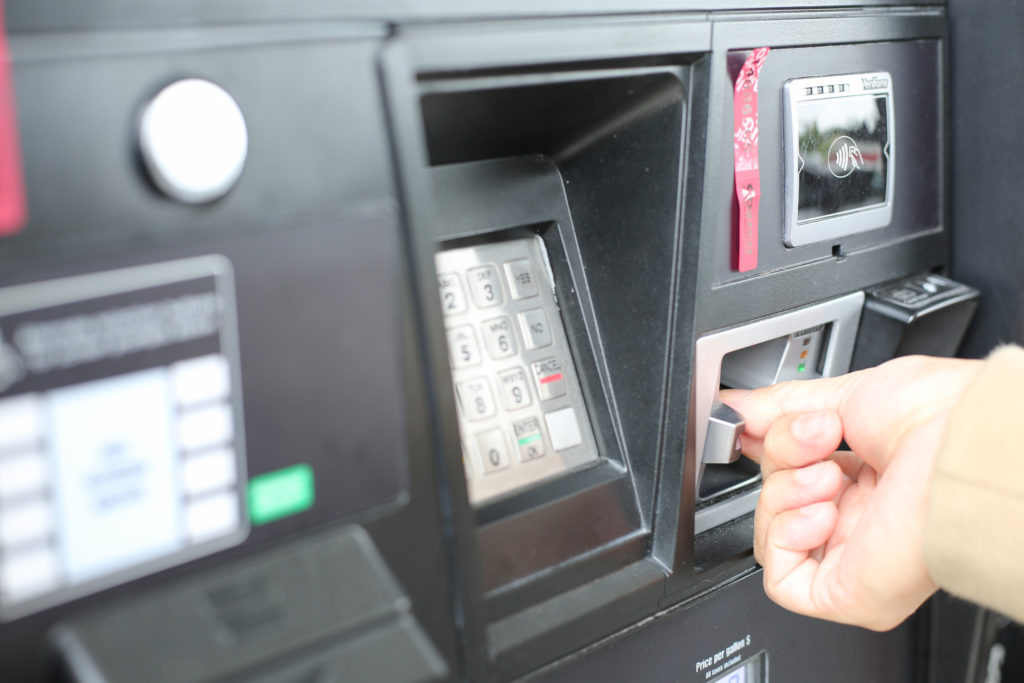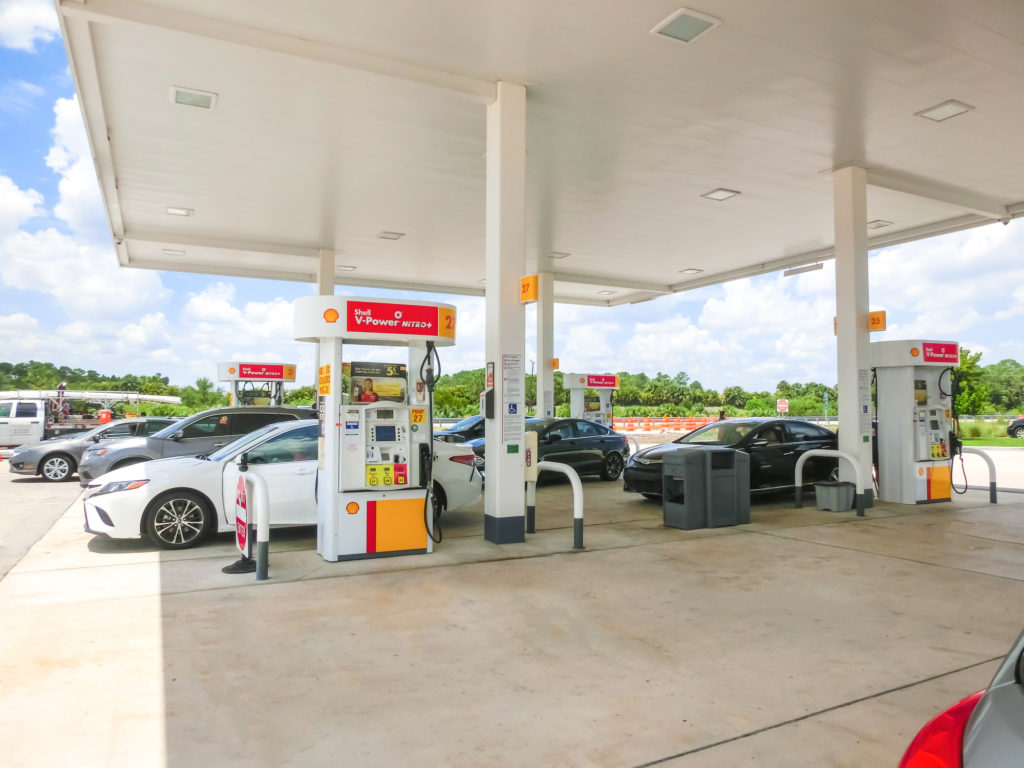
Of the 152,720 convenience stores that were in operation at the end of 2019, 121,998 of them were also in the business of selling motor fuel, accounting for about 80% of the total fuel sales throughout the United States in 2019. That means roughly 122,000 managers and owners struggled with the same challenge last year – effectively managing the purchasing habits of the 40 million Americans who purchase gas every day. Automated fuel management and oversight of fuel as a product can easily be accomplished through a robust fuel management software solution capable of integrating into an operation’s existing back of house and point of sale systems.
Why Invest in Automated Fuel Management and Other Back-Office Solutions
Success Systems, a recognized leading provider of convenience store software solutions, provides clients looking to manage fuel with the ePB Books or ePBA Accounting software packages to help achieve automation across fuel sales and management. This provides a number of benefits to our clients, which can be divided into three categories: improved inventory management, simplified compliance and reporting, and integration with consumer relationship-building tools. Let’s explore each of these benefits more in detail to see how automation behind the scenes can streamline and improve your operation on the front end.
Reduce the Inventory Headaches Through Automated Fuel Management
Managing inventory for retail items on the shelves is an extremely involved and time-consuming process when handled manually. However, with a commodity such as fuel, it would be almost impossible to track without some automation in place. Operators will gain several direct benefits through the use of integrated systems that track and report purchase data from the pumps and filter it back into the point of sale and back of house systems.
Pinpoint Accurate Tracking of Sales Trends Improve Order Accuracy
Inventory management boils down to determining customer purchase patterns over time so that your replenishment cycle of ordering and delivery takes place before you run out of product on-hand. Automated fuel management systems accomplish this down to the fraction of the gallon, can determine sales trends, and then coordinate with your fuel vendor’s automated ordering system to establish an adequate order and delivery cycle that ensures peak volume of fuel sales are handled and outages do not take place.
Reduced Waste and Loss on Product with Minimal Margins
Ranging from $0.15 to $0.28 over the last few years, the gross margin on fuel is extremely thin. Distributor costs, taxes, licensing, and a number of other costs carve into this number even further, making it crucial for your automated fuel management system to be able to accurately distribute and track purchases while keeping accurate measures of the onhand product.
Competitive Pricing Through Real-Time Pool Margin Reporting
To the uninitiated outsider, the process of establishing daily price points for fuel at your gas station must seem extremely arbitrary. However, with the right automated fuel management software package in place, price setting is not only extremely intentional, but it can help establish a competitive pricing baseline that will attract customers. Being able to set a competitive price is so important in fact, that price is the number one factor cited by consumers when asked why they chose a specific location for refueling.
Automated fuel management software helps to keep track of the seasonal pricing patterns that cause wild variation in costs to you from your vendor. The system will also track your cost per gallon by fuel grade, and take into account delivery fees. Also taken into account, with the proper integration into your point of sale and back of house systems, are credit card processing fees by a creditor. Combining all of these factors and assessing local market trends in pricing while trying to maintain some degree of profitability per gallon will eventually shake out at around an average of 5 cents profit per gallon. The system will accomplish this all behind the scenes, while also reconciling invoices and maximizing overall cash flow. From this highly accurate model, your automated fuel management system can respond to trends and changes in the local market at lightning speeds, giving you the advantage over your competition.

Simplify Compliance
As a convenience store operator, you are likely managing three of the most highly regulated commodities on a daily basis: lottery, tobacco, and fuel. Of the three product lines, fuel is the most challenging and demanding, as it is highly regulated at the federal, state, and local levels. If you’re using Success System’s fuel management software, you’re covered on two key regulatory fronts: tax liability and fuel storage compliance reporting.
Keep Track of Your Tax Liability
Fuel retailers are liable for taxes at the federal and state levels, and often at the local city level as well. Tax rates fluctuate based on the types and grades of fuel you keep on-hand. You can also be taxed on your storage tank system, depending on how your storage system is structured and the state where you operate. The United States Energy Information Administration provides fuel retailers with a comprehensive tax listing for motor fuel taxes they can use to determine their tax burden. A fuel management software solution can help retailers who self report their liability throughout the year to track purchases and sales, calculate tax liability automatically, and subsequently submit the required documentation to the IRS. This eliminates time-consuming filing while also always maintaining an always accurate record of your organization’s financial records, which could come in handy if your organization had to undergo an inspection or audit.
Easing the Complexities of UST/Tank Storage Reporting Requirements
Gas stations are impacted by the Environmental Protection Agency (EPA) regulations concerned with the use of aboveground and underground storage tanks to house petroleum or other hazardous materials. The EPA defines underground storage tanks (UST) as comprised of the storage container and connected underground piping in systems with at least 10% of their volume underground, and are primarily regulated at the federal level when they contain petroleum or certain hazardous materials. However, oversight of UST programs is mostly executed at the state or territory level. Aboveground storage tank (AST) compliance is covered under other compliance regulations concerned with bulk storage containers used in the storage of fuel or oil.
In order to meet the compliance requirements of the relevant EPA regulations and avoid penalties, gas stations must monitor storage units and generate specific compliance reporting. Reporting includes leak detection records, testing and inspection documentation, repair logs, and your financial responsibilities according to the EPA’s Dollars and Sense booklet. This document includes requirements to prove that a gas station proprietor can cover through insurance or other means the cost of cleanup in the instance of a spill or 3rd party damage to the equipment. All of these regulatory requirements, including the submission of automated reporting to the proper agencies as well as the creation and storage onsight of the necessary documentation and data, are included in the functionality of Success Systems fuel automation systems.
New Avenues for Engaging Customers
Your ability to engage with customers and capture their loyalty before and during their time at the pump is just as important as any signage or advertising you might deploy within the four walls of your retail space. In order to accomplish this, your fuel management software should integrate seamlessly with several initiatives – your rewards program and your third-party partnerships.
The Rewards Program That Keeps Them Coming Back
The good news is that many convenience stores and gas stations have loyalty programs in place. The bad news is that these programs aren’t being properly leveraged to build long-term relationships with customers. You shouldn’t only rely upon your loyalty app to entice shoppers through your doors, you want the app to engage them while they’re driving down the road, and while they’re at the pump. Discount incentives on gas are a great way to get their patronage, but further offers and engagement is necessary to then draw them in and take advantage of trends showing loyalty program members outspending non-members by an average of 29 percent.
Integrated Partnerships at the Pump
Tying credit card processing back to your fuel management software allows you to then integrate third-party programs into the fuel purchasing journey of your customers. Most notably, it will allow you to integrate partnerships with fleet card providers, placing you in these vendors’ valuable networks of potential long term customers. If you haven’t reached out to the major players in the fleet card industry, you’re missing out on a great opportunity to literally put our operation on a map for people looking for affordable fuel stops.

Automated Fuel Management With Back-Office Integration
Success Systems wants to bring all of the benefits of our automated fuel management solutions to your gas station operation. Through integration with your back of house and point of sale software, we can ensure you get the full impact of our inventory management modules, and that you never have to worry about compliance reporting again. Fold in the sales growth you can leverage through the loyalty program and third-party partnerships, and you have a tool that will help elevate your c-store to the next level. For more on our fuel management system and other c-store solutions, reach out to our team of consultants who can’t wait to see how our c-store portfolio fits into your future success.




Recent Comments